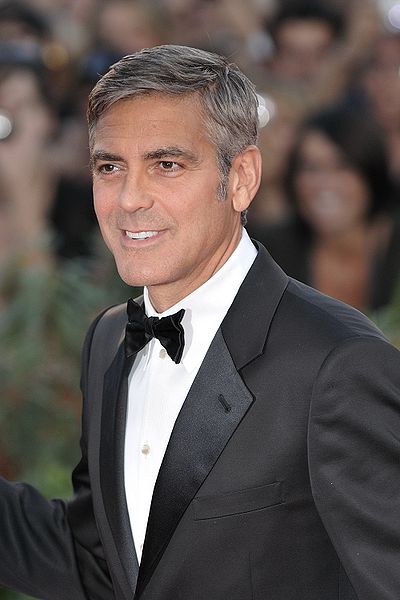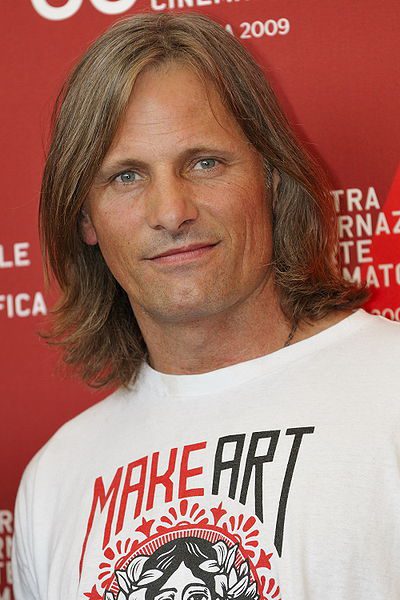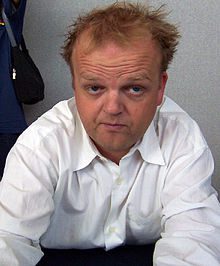
(Wikimedia Commons public domain photo)
***
I was delighted, some time ago, to discover that the British ITV mystery/detective series Midsomer Murders (1997-) has, at least in the past, featured a character named “Dr. Dan Peterson.”
Who, I wondered, could they have hired to portray a person bearing so solemn — so august, respectable, and important — a name? This would surely have been a decision fraught with cultural significance, entered into after long and serious deliberation. Several actors came immediately to my mind.


But no. They selected an actor who surprised me. Frankly, I have to confess that I, personally, would never have thought of him.
Plainly, we live in a fallen and sinful world:

Another random observation on the passing scene: I often marvel at the bizarre internet behavior of certain apostate critics of Mormonism. Some time back, though, I think I may have found an explanation for their antics:
https://www.braindecoder.com/caffeine-induced-mania-1168100701.html
More than a few of the zanier internet apostates post from time to time on the life-transforming wonders that they’ve discovered in their post-liberation consumption of coffee.
Pure coincidence?
Maybe. But I’m a man of science, and the alternative seems to me something more along the lines of demonic possession. I would prefer not to resort to that explanation. Unless, of course, we postulate that the devil dwells in coffee. Which is, surely, something to ponder . . .

Speaking of science: I find the continual contrasts of science to religion made by certain atheists — including at least one who likes to comment on my blog here — exceedingly odd. They incessantly point out that science has given us new technologies and cures for polio and other diseases, while theology hasn’t.
My response, on the whole, is “So what?”
To me, this is rather like criticizing the Houston Astros for their failure to score so much as a single touchdown during the entire baseball season just past. Or faulting Homer because his English was so bad. Or lamenting Chaucer’s uselessness in stamping out the bubonic plague or the irrelevance of an accurate knowledge of the Renaissance for building a highway bridge.
It’s like declaring that Thucydides, Tacitus, and Josephus are no longer worth reading since we now have electric toasters. Or that, in these days of jet air travel, there’s no point in reflecting on ethics or on moral issues. Or that, now that we’ve identified muons and positrons and covalent bonds, philosophy is obsolete. Or that, for a society that has essentially eliminated small pox, Shakespeare, Bach, Monet, Dickens, Goethe, Dante, and Dostoevsky are no longer relevant.
(I understand that the people making these unfavorable contrasts of science to religion are likely to go on doing so, despite the fact that, from my point of view, they’re committing something analogous to what Gilbert Ryle called a “category mistake” — and, yes, I’m well aware that Ryle was arguing against mind-brain dualism when he invented the term — but I retain the wan hope that, just perhaps, one of them will, in the manner of a Buddhist monk reflecting on a Zen koan, someday experience enlightenment.)
In the past, I devoted at least two overlapping columns to this topic in the Deseret News — but, since the argument continues to be made, I think it advisable to call attention to them yet again:
“Is the Bible more like Plato’s or Copernicus’ books?”
“Science, progress and religion”
Moreover, when these atheists observe that religion didn’t give us modern cosmology or a flu vaccine, they seem, implicitly, to be claiming science and its achievements for atheism, which is an entirely unjustifiable bit of ideological imperialism. It completely overlooks and ignores such figures (and their number could be multiplied many times over) as the cathedral canon Nicolaus Copernicus (father of the modern heliocentric concept of the solar system), the devoutly Christian Francis Collins (who oversaw the sequencing of the human genome), the deeply Lutheran Johannes Kepler (who made Copernicus’s system accurate by positing elliptical rather than circular orbits for the planets), Father Georges Lemaître (the mathematical physicist who first formulated the concept of an expanding universe and the “Big Bang”), the great Isaac Newton (who devoted roughly as much time to commenting on the Bible as to inventing modern physics), the devoutly Jewish Arno Penzias (co-discoverer of the first empirical confirmation of the Big Bang, 1978 Nobel laureate, and father of a rabbi), Father Gregor Mendel (the founder of modern genetics), the pious Muslim theoretical physicist Abdus Salam (winner of the 1979 Nobel Prize), the very Christian Allan Sandage (among the most prominent astronomers of the twentieth century), the great American Latter-day Saint chemist Henry Eyring (whose son currently serves as a counselor in the First Presidency of the Church of Jesus Christ of Latter-day Saints), and Theodosius Dobzhansky (the devoutly Russian Orthodox evolutionary biologist who was a principal figure in the synthesis of Darwinian evolutionary theory with genetics).
Please see my 2018 Deseret News column on “Kepler and the supposed war between science and religion,”
“I was merely thinking God’s thoughts after him,” Johannes Kepler once wrote. “Since we astronomers are priests of the highest God in regard to the book of nature, it benefits us to be thoughtful, not of the glory of our minds, but rather, above all else, of the glory of God.”
And here’s yet another column that I once wrote for the Deseret News that is also relevant to this issue:
“Inheriting wind — false accounts of the supposed war between science, religion”
***
The insistence of some militantly reductionist adherents of naturalism that “mind” is merely a more or less illusory product of purely chemical/physical processes, that consciousness and free will are hallucinations, seems to me transparently self-refuting. Why should I pay any more attention to the neurochemical events in an atheist’s brain than to his digestive processes? What significance would they have? And, anyway, what, given such preconceptions, would it mean for “me” to “pay attention” to such things? What on earth could it possibly mean to declare that the neurochemical events occurring at one GPS location are “about” the neurochemical events occurring at any other?











